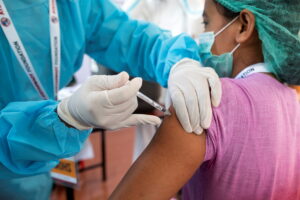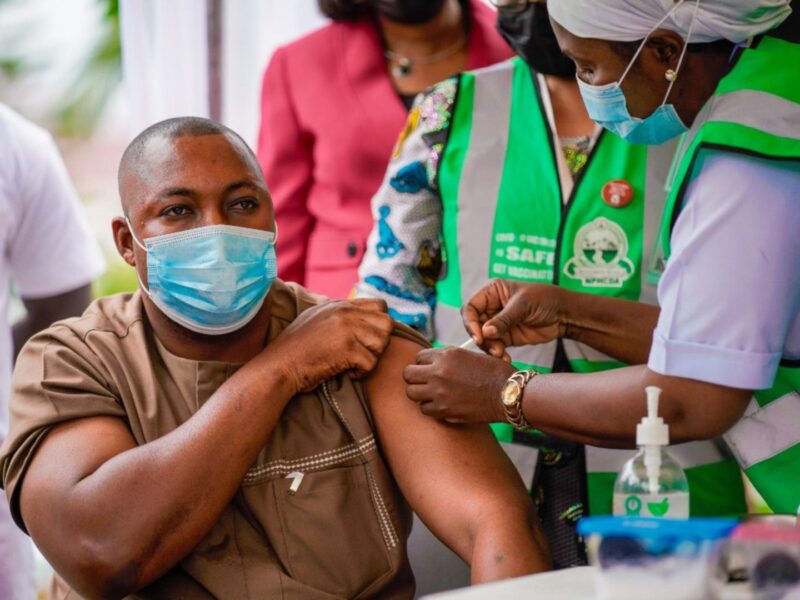Vaccinations stand as one of the most significant advancements in public health, offering a formidable defence against infectious diseases that have plagued humanity for centuries. By harnessing the power of immunization, vaccines prevent morbidity, mortality, and the spread of contagious diseases, thus safeguarding individual and community well-being.
This essay delves into the paramount importance of vaccinations for disease prevention, elucidating their profound impact on global health outcomes, herd immunity, and the eradication of deadly pathogens.
Historical Significance of Vaccines
The history of vaccines traces back centuries, with the earliest forms of inoculation dating back to ancient civilizations such as China and India. However, the modern era of vaccination dawned with Edward Jenner’s groundbreaking discovery of the smallpox vaccine in the late 18th century.
Since then, vaccines have played a pivotal role in controlling and eliminating infectious diseases that once ravaged populations, including polio, measles, rubella, diphtheria, and tetanus. The eradication of smallpox in 1980 is a testament to the transformative power of vaccines in averting human suffering and saving lives globally.
Principles of Vaccination

Vaccines operate on the principle of priming the immune system to recognize and mount a defensive response against specific pathogens, thereby conferring immunity without causing disease. They typically contain weakened or inactivated forms of the targeted pathogen or components of its structure, such as proteins or polysaccharides.
Upon administration, vaccines stimulate the production of antibodies and memory cells, which provide rapid and robust protection upon subsequent exposure to the actual infectious agent. This adaptive immune response forms the basis of long-term immunity, preventing disease transmission and reducing the severity of illness in vaccinated individuals.
Importance of Herd Immunity
Herd immunity, also known as community immunity, refers to the indirect protection conferred to unvaccinated or vulnerable individuals within a population when a significant proportion of the population becomes immune to a disease. By breaking the chain of transmission, vaccines create a collective shield that limits the spread of infectious agents, thereby protecting those who cannot receive vaccines due to medical reasons or contraindications.
Achieving high vaccination coverage rates is essential for maintaining herd immunity and preventing outbreaks of vaccine-preventable diseases, particularly among vulnerable populations such as infants, elderly individuals, and immunocompromised individuals.
Preventing Infectious Disease Outbreaks
Vaccinations serve as a frontline defence against infectious disease outbreaks, mitigating the risk of epidemics and pandemics that pose significant threats to public health and societal stability. Through routine immunization programs, vaccination campaigns, and mass vaccination efforts, public health authorities can control the spread of contagious diseases and prevent their resurgence. The recent COVID-19 pandemic underscores the critical importance of vaccines in combating emerging infectious threats and restoring normalcy to society. Vaccination against COVID-19 has proven instrumental in reducing transmission rates, hospitalizations, and fatalities, underscoring the pivotal role of vaccines in ending the pandemic and ushering in a post-pandemic era.
Economic and Societal Benefits
Beyond their direct health benefits, vaccines yield substantial economic returns and societal dividends by reducing healthcare expenditures, boosting productivity, and fostering social cohesion. Vaccinations prevent millions of cases of illness, hospitalizations, and premature deaths annually, thereby alleviating the burden on healthcare systems and sparing individuals and families from the financial hardship associated with medical costs and lost wages.
Moreover, by preserving workforce productivity and educational attainment, vaccines contribute to economic growth, poverty reduction, and human development, thus fostering resilience and prosperity in communities worldwide.
Addressing Vaccine Hesitancy and Misinformation
Despite the overwhelming evidence supporting the safety and efficacy of vaccines, vaccine hesitancy and misinformation pose significant challenges to global immunization efforts. Addressing vaccine hesitancy requires a multifaceted approach that encompasses education, communication, community engagement, and trust-building initiatives.
Healthcare providers, public health authorities, and community leaders play pivotal roles in disseminating accurate information, debunking myths, and addressing concerns surrounding vaccines. By fostering open dialogue, promoting vaccine literacy, and tailoring communication strategies to diverse cultural and linguistic contexts, stakeholders can empower individuals to make informed decisions about vaccination and prioritise the health and well-being of themselves and their communities.
Conclusion
In conclusion, vaccines represent a cornerstone of modern medicine and public health, offering unparalleled protection against infectious diseases and saving countless lives worldwide. By harnessing the power of immunization, vaccines prevent morbidity, mortality, and disability, thus fostering healthier, more resilient communities.
The importance of vaccines for disease prevention cannot be overstated, as they not only safeguard individual health but also uphold societal well-being, economic prosperity, and global security. As we navigate the challenges of the 21st century, let us reaffirm our commitment to immunization, prioritize vaccine equity, and harness collective action to ensure that everyone, everywhere has access to life-saving vaccines. In doing so, we can build a healthier, more equitable world for current and future generations.
Related Tags
Taiwo Olawuyi
Taiwo Olawuyi is a highly dedicated and passionate professional blogger, renowned for her ability to create captivating, informative, and engaging content in the realm of health and wellness. She holds a Bachelor's degree in Political Science from Olabisi Onabanjo University and a Master's degree in Adult Education from the prestigious University of Ibadan. Her profound passion for health and wellness, coupled with her unwavering dedication to her audience, serves as a constant source of inspiration and enlightenment for readers worldwide.










